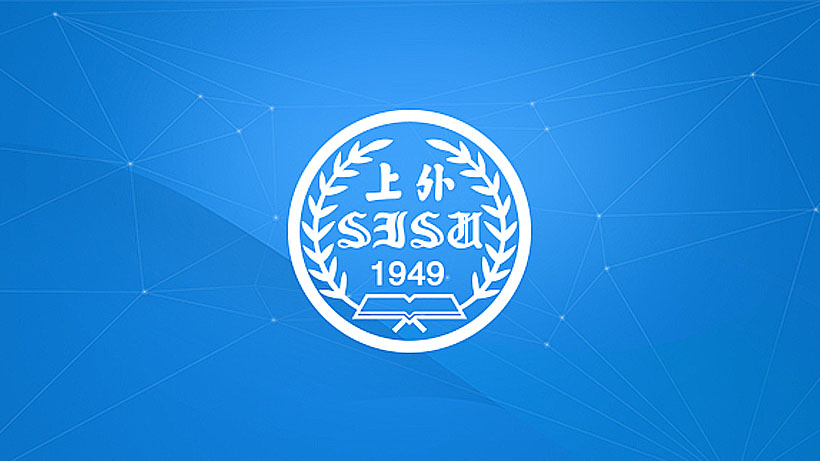
王芳
王芳,上海外国语大学法学院99级校友,香港大学普通法硕士。现任深圳市中级人民法院破产法庭四级高级法官、中国社会科学院法学所特邀研究员,从事民商事、执行和破产审判工作十余年。先后参与全国首个个人破产地方立法的起草和全国首家深圳破产财产网络处置平台的建设与运营。在《中国审判》《中国法治蓝皮书》《政法论坛》《人民司法》等国家级刊物发表专业文章十余篇。曾承办全国首个通过网拍方式处置波音747飞机的翡翠航空破产清算案,全国首个适用预重整完成上市公司重整的飞马国际公司重整案等多个经典案例。
新闻报道


王芳,上海外国语大学法学院99级校友,香港大学普通法硕士。现任深圳市中级人民法院破产法庭四级高级法官、中国社会科学院法学所特邀研究员,从事民商事、执行和破产审判工作十余年。先后参与全国首个个人破产地方立法的起草和全国首家深圳破产财产网络处置平台的建设与运营。在《中国审判》《中国法治蓝皮书》《政法论坛》《人民司法》等国家级刊物发表专业文章十余篇。曾承办全国首个通过网拍方式处置波音747飞机的翡翠航空破产清算案,全国首个适用预重整完成上市公司重整的飞马国际公司重整案等多个经典案例。
新闻报道
赖骏楠,北京大学法学博士,复旦大学法学院副教授。主要研究领域为中国法律史、西方法律思想史及法律史学方法论。代表性作品为专著《国际法与晚清中国:文本、事件与政治》(上海人民出版社2005年版,荣获首届“实践社会科学青年学者最佳专著奖”)及译著《战争之谕:胜利之法与现代战争形态的形成》(中国政法大学出版社2015年版),另在《法学研究》《中外法学》《法学家》《清华法学》,Hong Kong Law Journal 以及Modern China等中外学术刊物上发表论文若干。近几年关注议题为明清以降的地权、财税、司法与国家权力间的复杂互动。
新闻报道

美国的中亚政策:基于猎鹿博弈视角的分析
政治学博士 ,中国社会科学院俄罗斯东欧中亚研究所研究员
新闻报道

传播策略与大国的数字外交
政治学博士 ,中国社会科学院俄罗斯东欧中亚研究所研究员
新闻报道

肖斌,国际问题的科学研究过程
政治学博士 ,中国社会科学院俄罗斯东欧中亚研究所研究员
新闻报道

为更好地促进我国外语教材研究成果的交流、传播与共享,推进构建新时代有中国特色的外语教材理论体系,上海外国语大学外语教材研究院将陆续邀请国内外教材编写和研究领域专家、学者做学术讲座。继2020年11月第一期成功举办之后,教材研究院再次特邀国内教材编写领域资深专家、复旦大学李荫华教授做第二场学术讲座。讲座采用线下形式,并通过线上直播,欢迎收听收看。
李荫华教授主要结合多年来参与大学英语教材的编写实践和探索谈个人的心得体会。他将谈及教材编写作为一项系统工程,在筹备、编写、试用和修订各个阶段的做法和要求,并提出编写教材应具备的9个方面条件。他还对编者的人选和如何选材提出自己的看法。在讲座中,他将根据多年的编写实践总结出决定教材成功的关键因素。讲座中还涉及教材编写应重点关注的几个方面。在最后部分,李教授将提出教材如何在坚持特色的基础上不断创新,并为今后我国外语教材研究和建设提出有益的设想和建议。
本讲座同时在上海外语教育出版社WE MOOC平台直播,直播间网址:https://wemooc.sflep.com/liveDetail/?id=44。
李荫华,复旦大学教授,享受国务院政府特殊津贴专家。曾先后担任教育部大学外语教学指导委员会副主任委员、主任委员,全国高校自学考试委员会英语专业委员会委员、亚洲英语学会 (Asia TEFL) 副会长等职。2004 年担任教育部 《大学英语课程教学要求(试行)》制定组组长。长期从事大学英语教学和教材编写以及英语词典学的研究和辞书编写。曾参加编写《文科英语》,“大学英语”系列教材《精读》第三、四、六册(主编),“全新版大学英语”(总主编),“全新版大学进阶英语”《综合教程》(总主编)。曾参与《新英汉词典》、《牛津高阶》等多部英汉辞书的编写。
新闻报道
书展共展出“左联”相关书籍约120册,涵盖“左联”作家群的个人作品、传记、发表刊物、翻译作品、对其影响深远的书籍以及“左联”相关研究等。
新闻报道

在疫情防控背景下,2021年春节档票房已超过2019年,成为史上最强春节档,并涌现《你好,李焕英!》《唐人街探案3》等超高票房电影,尤其贾玲首次跨界执导的电影《你好,李焕英!》票房已经冲破50亿元,成为现象级电影。本次沙龙由上海外国语大学新闻传播学院教师高凯主持,邀请上海社会科学院副研究员刘春、上海外国语大学法学院副院长王伟臣做嘉宾,共同对“史上最强春节档”进行全方位观察,并结合案例分析,对其形成原因及其带来的思考进行讨论。
【题目】文本·票房·观众---漫谈“史上最强春节档”
【主持】高凯(上海外国语大学)
【嘉宾】刘春(上海社会科学院)王伟臣(上海外国语大学)
上海社会科学院文学研究所文化产业室副研究员,《上海电影产业发展蓝皮书》执行主编,上海社会科学院文学研究所上海电影产业发展研究中心执行主任,中国电影评论学会海派影视研究会副秘书长,上海国际文化学会秘书长,中国长三角高校影视戏剧学会会员,中国夏衍电影学会会员,上海电影家协会会员,上海电影评论学会理事,研究方向为中国当代电影批评、电影产业、影视创意写作。
王伟臣,法学博士,上海外国语大学法学院副院长、副教授,主要从事法律人类学、比较法律文化的研究。出版有《法律人类学的困境》《法律文明的起源》《牛津国际法史手册》等专著、译著,在《民族研究》《法学家》等刊物上发表论文、译文五十余篇。曾获首届“曾宪义法律史奖学金”优秀博士论文奖、上海市哲学社会科学优秀成果奖二等奖、上海市教学成果奖二等奖等奖项。
新闻报道

中国人民大学哲学院、博士
新闻报道

主讲人:邱宝华
主持人:张海斌
邱宝华,上海市劳动人事争议仲裁院院长。华东政法学院法学硕士,复旦大学管理学博士。长期从事人力资源社会保障法治工作。参与国家与地方立法二十余部,撰写《上海市劳动合同条例释义》《上海市集体合同条例释义》等多部立法释义。参与人力资源社会保障政策制定近两百件。处理人力资源社会保障行政复议诉讼一千余件。在上海市劳动人事争议仲裁院工作期间,每年组织处理劳动人事争议案件两千件。
新闻报道